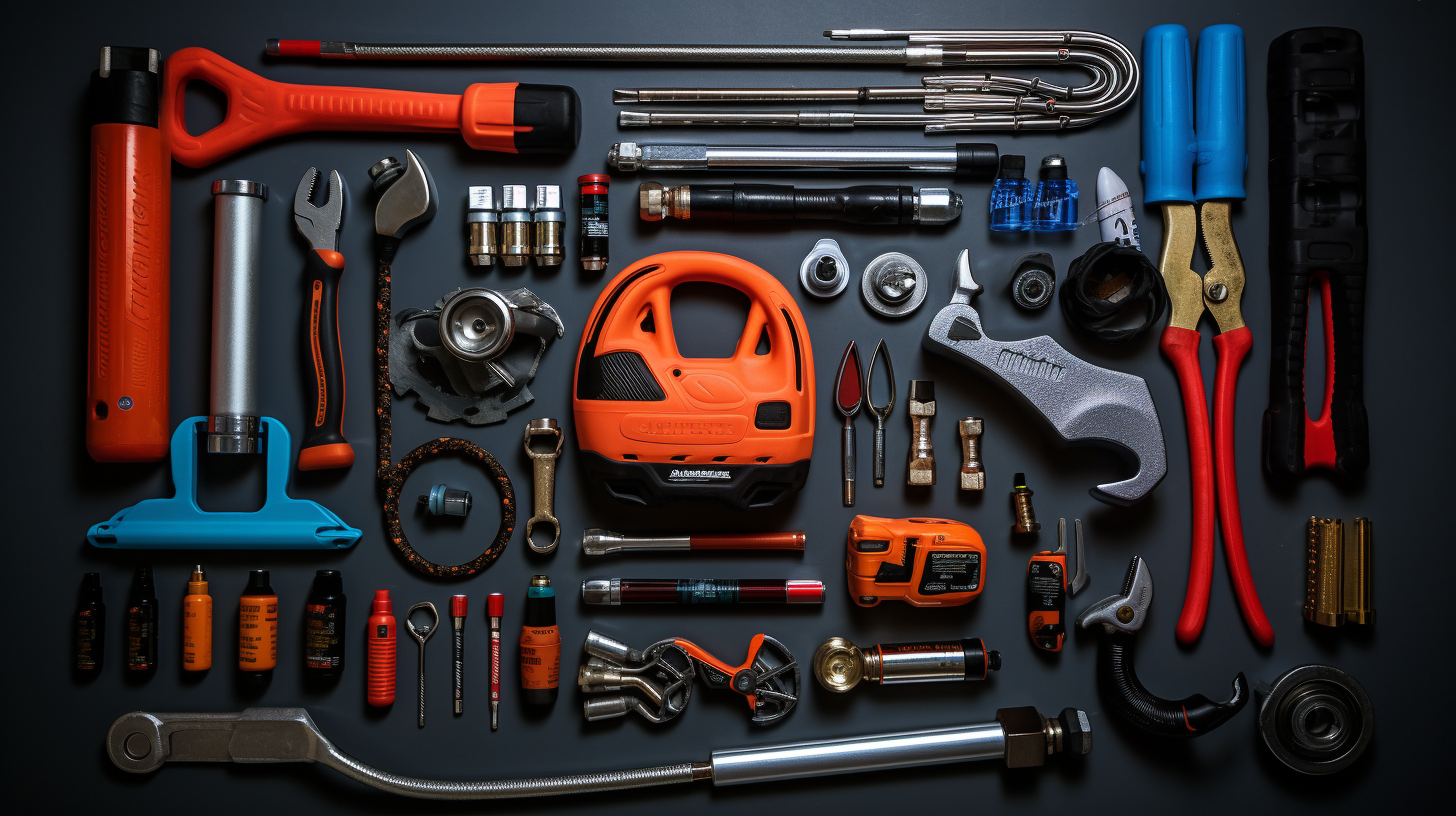Are you ready to tackle your water heater repair on your own? Before you dive in, make sure you have the right tools for the job.
In this article, we'll guide you through the top essential tools you'll need to successfully fix your water heater. From safety equipment to wrenches and pliers, we've got you covered.
So grab your multimeter, pipe cutters, and drain pan, and let's get started on your DIY water heater repair journey.
Safety Equipment
To ensure your safety while performing DIY water heater repairs, it's important to have the proper safety equipment on hand.
The first essential item is a pair of heavy-duty work gloves. These gloves will protect your hands from burns and cuts while handling hot pipes and components.
Next, you'll need safety goggles to shield your eyes from any flying debris or splashes of hot water.
It's also crucial to have a fire extinguisher nearby in case of any accidental fires.
Additionally, a non-contact voltage tester is essential to check for any electrical current before starting any repairs.
Lastly, make sure to have a sturdy step ladder to safely reach the water heater and perform the necessary repairs.
Wrenches and Pliers
Now that you have the necessary safety equipment, it's time to delve into the topic of wrenches and pliers for your DIY water heater repair. These tools are essential for various tasks, such as loosening or tightening bolts and nuts, gripping pipes, and manipulating small components.
When it comes to wrenches, adjustable wrenches are versatile and can handle different sizes of nuts and bolts. A pipe wrench, on the other hand, is perfect for gripping and turning pipes.
Pliers, like slip-joint pliers, are great for gripping and holding objects securely. Needle-nose pliers, with their long, slender jaws, are useful for reaching into tight spaces.
With these tools in your arsenal, you'll be well-equipped to tackle any water heater repair job.
Multimeter and Voltage Tester
You will need a multimeter and voltage tester to effectively diagnose and troubleshoot electrical issues during your DIY water heater repair. These tools are essential for checking the flow of electrical current and determining if there are any problems with the power supply to your water heater.
A multimeter measures various electrical quantities, such as voltage, current, and resistance, allowing you to identify any abnormalities. It can help you determine if a heating element is faulty or if there's a wiring issue.
On the other hand, a voltage tester is used to check for the presence of electrical voltage. It ensures that power is properly disconnected before you start working on your water heater, preventing any potential accidents.
Pipe Cutters and Thread Seal Tape
You'll need a pipe cutter and thread seal tape for your DIY water heater repair.
A pipe cutter is an essential tool that will allow you to easily cut through pipes with precision. It's important to have a clean and accurate cut to ensure a proper fit. With a pipe cutter, you can easily trim pipes to the desired length without the need for specialized equipment.
Thread seal tape, on the other hand, is used to create a watertight seal between threaded connections. By wrapping the tape around the threads, it helps prevent leaks and ensures a secure connection. Make sure to apply the tape in a clockwise direction for a tight seal.
Both the pipe cutter and thread seal tape are must-have tools for any water heater repair project.
Drain Pan and Shop Vacuum
To efficiently handle any water heater repair, it's crucial to have a drain pan and a shop vacuum at your disposal.
These two tools are essential in dealing with any potential water leaks or spills that may occur during the repair process.
A drain pan is designed to catch and contain any water that may leak from the water heater, preventing damage to your floors or surrounding areas.
Meanwhile, a shop vacuum is perfect for quickly and efficiently removing any water that has already spilled.
It's important to have a shop vacuum with wet/dry capabilities to ensure it can handle the water effectively.
Conclusion
In conclusion, having the right tools is essential for DIY water heater repair. Safety equipment, wrenches, pliers, a multimeter, voltage tester, pipe cutters, thread seal tape, drain pan, and a shop vacuum are all important to have on hand.
By using these tools correctly, homeowners can safely and effectively troubleshoot and fix common water heater issues, saving time and money on professional repairs.

